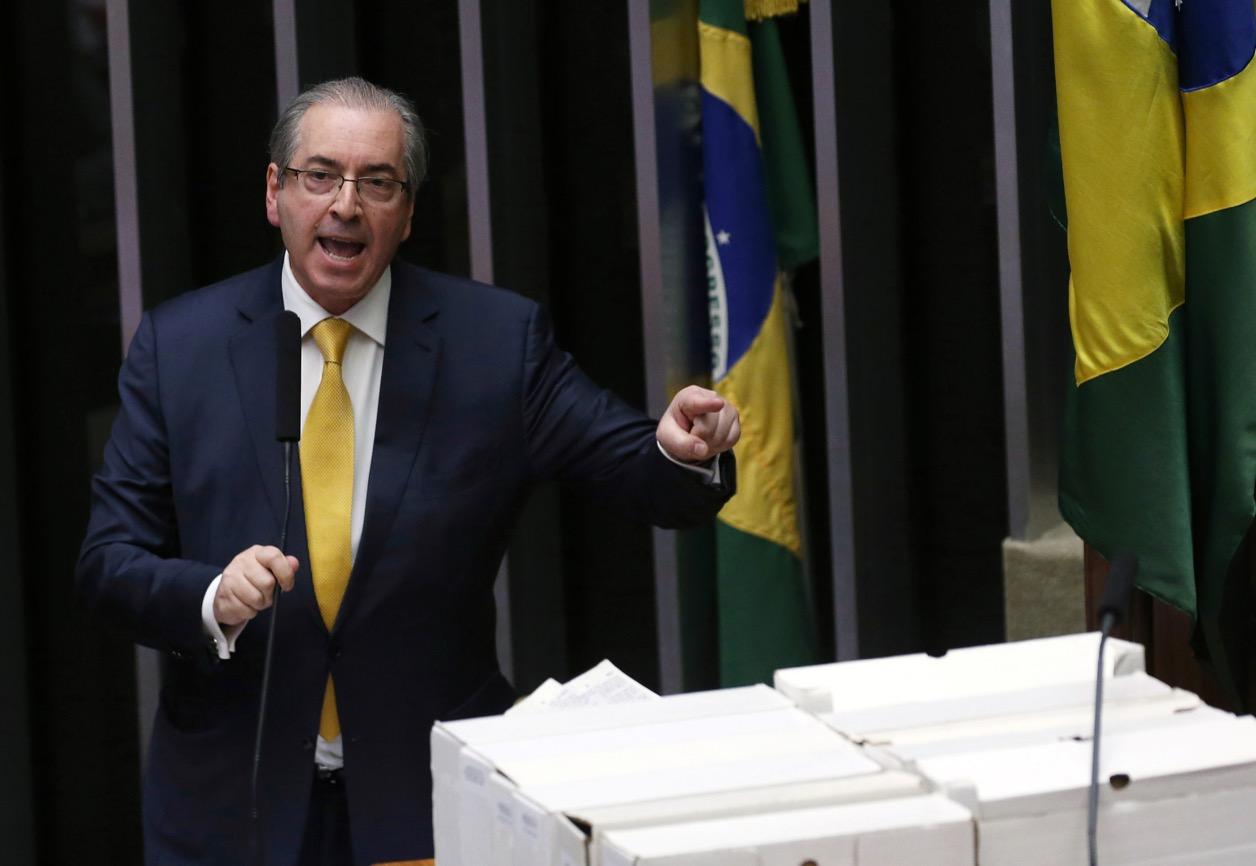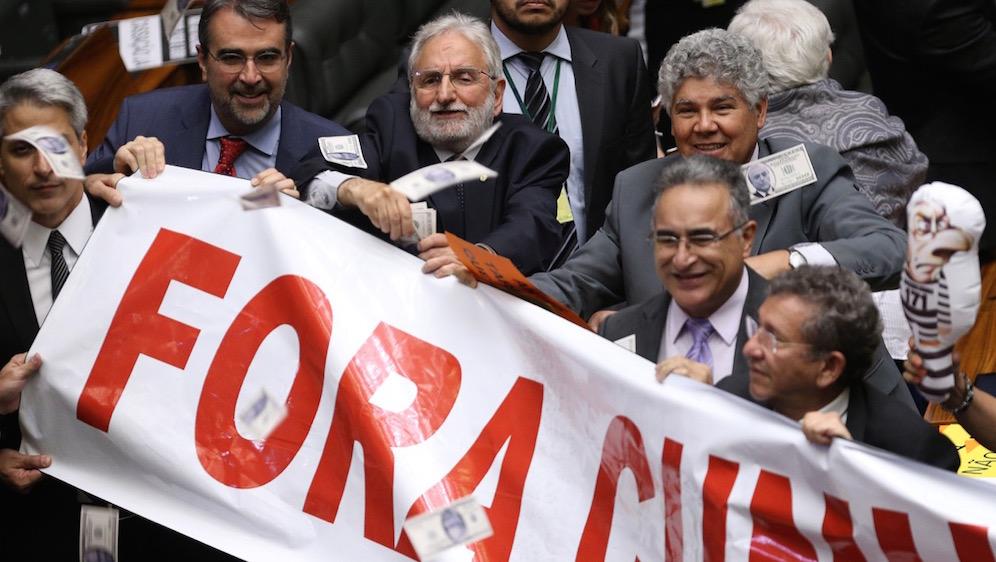Brazil ousts the right-wing lawmaker who pushed for Rousseff’s impeachment
Brazilian lawmakers celebrate the "yes" vote to remove former Speaker Eduardo Cunha, in Brasilia on Sept. 12.
Brazil's lower house of Congress voted Monday to oust its former speaker Eduardo Cunha. He's the one who spearheaded the impeachment of President Dilma Rousseff — only to suffer his own corruption-stained downfall.
Cunha has been compared to the manipulative villain Frank Underwood of Netflix's "House of Cards." The real-life politico was stripped of his seat in the Chamber of Deputies by a resounding vote of 450 in favor, 10 against and nine abstentions.
"I declare lawmaker Eduardo Cunha stripped of office for conduct incompatible with lawmakers' duties," said the decision read out at the conclusion of the late-night session.

His enemies accuse him of using his power to launch impeachment proceedings as a trump card to stave off his own prosecution for allegedly taking millions of dollars in bribes.
Read more: Brazil’s top legislator alleges Washington and NGOs use abortion to get rid of poor people
He resigned as speaker in July amid swirling accusations of corruption linked to the huge state oil company Petrobras.
He was forced to face the music in Congress for having "lied" to other lawmakers about his possession of secret Swiss bank accounts.
Cunha, who denies any wrongdoing, handled his own defense at Monday's session. He mainly displayed the cool and calculating persona he is known for, but occasionally his voice broke with emotion.
"I didn't lie. There's no bank account. Where's the proof?" he said.
"Don't judge me based on what public opinion says," he implored, reminding his colleagues that at least 160 of them also face judicial investigations.
But his appeals fell on deaf ears. The vote against him was well clear of the simple majority of 257 needed in the 513-member chamber.
Cunha was first suspended in May, less than a month after lawmakers voted to open impeachment proceedings against Rousseff, Brazil's first woman president.
Rousseff was definitively removed from office on Aug. 31, and replaced by her vice president turned nemesis, Michel Temer.
The new center-right administration brought an end to 13 years of leftist rule in Brazil.
Evangelical 'gangster'
Cunha used a variety of stalling tactics to slow the proceedings that ultimately led to his ouster from Congress. The process dragged on for almost a year, the longest in Brazilian history.
Analysts had predicted he would continue to stall by asking his peers to delay a vote on his fate, arguing for a simple suspension or asking that lawmakers allow him to keep the right to hold public office.
But many of his onetime allies deserted him — including in his own PMDB party, the biggest in Brazil and also Temer's party.
Rousseff, from the leftist Workers' Party, accused both Temer and Cunha of orchestrating a coup against her.
Thanks largely to Cunha's leadership, the lower house voted heavily in favor last year of opening an impeachment trial against Rousseff, on charges that she illegally manipulated government accounts.
On April 17, the day Rousseff's impeachment trial was authorized, Cunha was the target of a barrage of insults in Congress from leftist deputies, who shouted "Gangster!" and "Putschist!"
Cunha was long considered one of the best wheelers-and-dealers in Brasilia, building a considerable support base including the powerful agriculture lobby, fellow evangelicals and the so-called "bullet caucus" of politicians with police and army connections.
He won prominence promoting a conservative social agenda that included a "Heterosexual Pride Day" and restrictions on abortion. He has been reported to own no less than 150 Internet domains using the name "Jesus."
His defense Monday was sprinkled with religious references, as well as condemnation of Rousseff and her Workers' Party (PT).
In the end, he outlasted her by just two weeks.
"It's the price I'm paying so Brazil can be free of the PT. They're making me pay the price for impeachment," he said.
No matter his fate, he said, no one can take from him "the pleasure of seeing that criminal government go."
AFP's Damian Wroclavsky reported from Brasilia.
The story you just read is accessible and free to all because thousands of listeners and readers contribute to our nonprofit newsroom. We go deep to bring you the human-centered international reporting that you know you can trust. To do this work and to do it well, we rely on the support of our listeners. If you appreciated our coverage this year, if there was a story that made you pause or a song that moved you, would you consider making a gift to sustain our work through 2024 and beyond?
